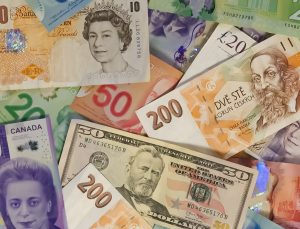Foreign exchange trading, also known as Forex or FX trading, is the process of buying and selling currencies in order to make a profit. Forex trading is done through a broker who acts as an intermediary between the buyer and the seller. One of the most important concepts in Forex trading is the spread. Understanding how the spread works is essential for anyone who wants to trade in the Forex market.
What is a Spread?
In Forex trading, the spread is the difference between the bid price and the ask price of a currency pair. The bid price is the price at which a trader can sell a currency, while the ask price is the price at which a trader can buy a currency. The spread is the cost of the trade and is expressed in pips, which is the smallest unit of measurement for a currency pair.
For example, let’s say the bid price for the EUR/USD currency pair is 1.1200, and the ask price is 1.1205. The spread in this case is 5 pips. To open a trade, a trader must pay the spread, which is the difference between the bid price and the ask price. In this case, the trader would pay 5 pips.
How is the Spread Determined?
The spread is determined by the broker and can vary depending on several factors. The main factor that affects the spread is liquidity. Liquidity is the ease with which a currency can be bought or sold without affecting the price. Currencies that are high in demand and have a large trading volume are considered more liquid than those that are less in demand.
The more liquid a currency pair, the lower the spread. For example, the EUR/USD currency pair is one of the most liquid pairs in the Forex market and has a low spread. On the other hand, less liquid currency pairs, such as exotic pairs, tend to have a higher spread.
Another factor that can affect the spread is volatility. Volatility refers to the degree of price fluctuations in a currency pair. When a currency pair is volatile, the spread tends to widen. This is because the broker wants to cover their risk and ensure that they can execute the trade at the quoted price.
Lastly, the time of day can also affect the spread. During peak trading hours, such as when the European and US markets are open, the spread tends to be lower as there is more liquidity. On the other hand, during off-peak hours, the spread can widen as there is less liquidity in the market.
Why is the Spread Important?
The spread is an important factor to consider when trading Forex as it directly affects the cost of the trade. The wider the spread, the more a trader will have to pay to open a trade, and the more they will have to make in profit to cover the cost of the trade.
The spread can also affect the profitability of a trade. In order to make a profit, a trader must sell a currency at a higher price than they bought it. If the spread is too high, it can make it difficult for a trader to make a profit as they will need to sell the currency at an even higher price to cover the cost of the spread.
In addition, the spread can affect the speed of execution of a trade. When the spread is tight, the trade can be executed quickly as there is more liquidity in the market. However, when the spread is wide, it can take longer for a trade to be executed as there is less liquidity in the market.
Conclusion
The spread is a crucial concept in Forex trading as it directly affects the cost and profitability of a trade. Understanding how the spread works is essential for anyone who wants to trade in the Forex market. By considering the factors that affect the spread, such as liquidity, volatility, and time of day, traders can make informed decisions about their trades and manage their risk effectively.





